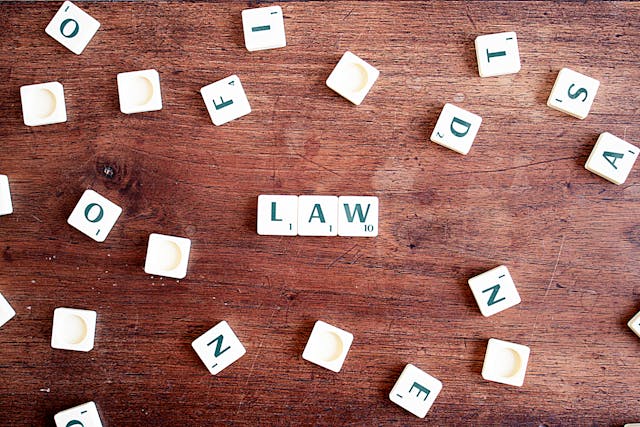When someone is involved in a car accident, their first instinct is often to share the experience online. Whether it’s a photo of the damaged vehicle or a status update, social media is a natural outlet in moments of stress. However, those few posts, however harmless they may seem, can carry serious consequences if the accident leads to a legal claim.
When a personal injury case is filed, insurance companies and defense attorneys often examine public profiles. What may appear to be a simple update can be used for questioning during the trial. Even unrelated posts can be taken out of context and used against you.
This article will explore how social media can jeopardize your car accident claim.
What You Post Can Hurt Your Case
People often underestimate how their online behavior can be misinterpreted. A brief comment like “I’m doing okay” in response to a friend’s question can be spun as evidence that your injuries weren’t serious.
This is just one example of how seemingly harmless actions can become costly mistakes after a car accident. What you post online creates a public record, one that insurance adjusters and opposing counsel can use. According to Freeman Law Firm, they may use it to contradict your story in court. They might also use this information to lower the value of your claim or have it thrown out completely.
Even posts that have nothing to do with the accident can complicate your case. An image of you lifting a child or participating in a group activity can be brought up to challenge your stated injuries. It can become one of the most costly mistakes after a car accident. Therefore, you should refrain from posting anything on social media after the collision.
Private Doesn’t Mean Hidden
Many assume that making profiles private shields them from scrutiny. However, courts often compel disclosure of relevant personal data during the discovery phase.
Ontario’s Rules of Civil Procedure, for example, require plaintiffs to produce any social media content relevant to their injury claims. As stated by Law Times News, the U.S. federal courts also follow similar evidence rules. Private content can be admitted when properly authenticated and deemed relevant by a judge.
This means your entire digital footprint, public posts, private messages, check-ins, stories, and archive content can become part of your legal file. Insurance investigators often use fake profiles or third-party tools to gain deeper insights into your behavior. Whatever you share online is at risk of becoming evidence in court.
Deleting Posts Might Backfire
After realizing the implications, some people choose to delete sensitive posts. That act, however, can be interpreted as intentional removal of evidence, known as “spoliation.”
A classic example of spoliation can be seen in the Facebook selling personal information case. According to The National Law Review, Facebook was supposed to retain Electronically Stored Information (ESI). However, it failed to do so, and the chancery imposed penalties for spoliation in the Facebook case.
Courts may impose sanctions or negative inferences against you, weakening your credibility and harming your case. Content may also exist in archives, screenshots, or cached pages and can be retrieved later.
Rather than deleting content, it’s wiser to stop posting entirely once a legal claim is anticipated. If prior posts appear problematic, discuss them with your attorney. They’ll help decide whether the content is significant and advise you on how to address it during discovery or settlement discussions.
Social Media’s Role in Settlement Talks
Most car accident claims settle before heading to trial. Yet, settlement negotiations are often influenced by social media evidence. Insurance adjusters use inconsistencies to argue that a claimant’s injuries are overstated.
As stated by The Law Brigade, even simple activities of recovery seen in social media posts can be used against you. For instance, a post of trying to ski can jeopardize the back injury you reported.
The use of social media posts in court cases is increasing. A JD Supra article mentions a report that shows an increase in the use of social media evidence in matrimonial cases. In fact, a survey highlights that 78% of divorce attorneys cited an increase in the use of social media evidence.
When Social Media Can Work in Your Favor
While social media can be detrimental to a car accident case, it doesn’t have to be that way. In some situations, your posts may actually support your claim.
For example, a video taken at the scene of the crash might show vehicle damage or road conditions that help clarify fault. A timestamped post could corroborate your account of the accident’s time and location.
That said, using social media to support your case should always be done carefully and in coordination with your attorney. What you see as helpful may still be open to interpretation, and without context, even supportive posts can be misread.
The key is to be intentional and selective. If you believe your content documents important details, don’t assume it’s automatically helpful. Run it by your legal team to determine how others might receive it.
Frequently Asked Questions
Can commenting on someone else’s post affect my car accident case?
Yes, it can. Even if you avoid posting about your accident, your comments on others’ posts are visible and can be used in your case. For example, suppose you comment on someone’s vacation photos, saying you wish you could join. In that case, it could be misinterpreted as an indication that you’re physically capable of traveling.
Should I ask friends and family to stop tagging me in posts?
Absolutely. Being tagged in photos, check-ins, or status updates can unintentionally reveal details about your condition or activity level. It’s a good idea to talk to those close to you and ask them not to tag you or mention your name.
What if my account is anonymous or uses a different name?
Using a pseudonym might give a false sense of privacy. Investigators and attorneys often have tools to uncover anonymous or alternate accounts, especially if they can be connected to you through other users. Nothing posted online is truly hidden.
Social media is a powerful tool, but it becomes a liability if not handled carefully after a car accident. Every photo, comment, and interaction contributes to the story others will try to piece together about your condition, your credibility, and your claim. In a legal case, the narrative’s presentation is crucial.
Staying silent online during this period is not about being secretive; it’s about being smart. You’ve already experienced the physical and emotional toll of a crash. There’s no reason to let a post or photo undo the progress you’ve made or complicate your efforts to recover compensation. Be cautious, stay informed, and let your legal team guide you through every step, both in and out of the courtroom.
Articles published under the Editorial Desk byline may include material from various sources and are reviewed internally to ensure clarity, factual consistency, and compliance with the site’s editorial standards. Content is published for general informational purposes only and follows applicable content and publishing guidelines




